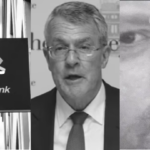Federal Corruption Watchdog Directed to Reconsider Refusal to Investigate Robodebt

The National Anti-Corruption Commission publicly announced in June that it would not be further inquiring into the Robodebt Royal Commission (RRC) submission that referred six public officials to the newly created federal integrity watchdog for official investigation, as it had determined it “would not be in the public interest” and would not be of any material benefit to the victims of Robodebt.
This outcome was almost unfathomable, as following years of campaigning for a federal corruption watchdog with teeth, the NACC was finally established in mid-2023 and the major corruption scandal that it was expected to bring accountability in respect to was the Robodebt scheme.
Yet, since making its decision not to investigate, it has become the subject of a corruption inquiry itself into how it made the decision.
The Inspector of the National Anti-Corruption Commission (INACC) Gail Furness SC announced that she was launching an investigation into the NACC on 13 June 2024, after receiving almost 900 complaints about the NACC Robodebt determination within a week of it being made, and as these raised charges of “corrupt conduct or maladministration”, she’d determined such an inquiry was warranted.
The INACC delivered her report into the NACC not inquiring into the RRC referrals on 30 October, and it found that the main issue involved were the actions taken by NACC commissioner Paul Brereton after he’d declared that he had a conflict of interest in regard to one of the six public officials the RRC submission made referrals in relation to.
And in response the federal watchdog publicly announced it had determined to revisit its decision later that same day.
A public want not in its interest
The INACC sets out that eventually over 1,200 complaints were made in regard to the Robodebt refusal, which comprised of suggestions that the NACC commissioner had a conflict of interest, assertions that the RRC’s referral was disrespected, that it led to a lack of public accountability, it was unreasonable to the victims and that the watchdog’s reasoning was inadequate and its timing slow.
Robodebt was a social security debt collection drive launched by the Coalition government in 2015 that relied on an illegal process of computerised income averaging that produced false debts, due to poor design. This led to welfare recipients receiving letters demanding payment of unknown debts. And consistent valid complaints about it were downplayed until the scheme came to an end in 2019.
The NACC received the referral to investigate six public officials in relation to Robodebt from the RRC in July 2023. This involved five Australian Public Service employees and one minister. The five public servants were also referred for further investigation in relation to Robodebt to the Australia Public Service Commission.
And despite assertions made by the NACC in regard to the remedial powers of the APSC that the five referrals were likely to be subjected to as a result of that investigation, all five were no longer employed by the APS, so the APSC could not sanction them in regard to corruption, as it can only penalise current APS employees.
Delegating and derailing
The reasoning behind the decision not to investigate Robodebt was based on NACC Commissioner Brereton having a conflict of interest, as he knew one of the former Australian public service employees referred for investigation quite well. So, he delegated the decision-making of the inquiry over to NACC deputy commissioner Nicole Rose in early July 2023.
The NACC’s senior assessment panel (NSAP), chaired by Brereton, met on 19 October 2023 to consider the Robodebt referrals. This first such meeting determined to make the decision at a later point. Options in relation to solely investigating the minister were considered. But a decision was eventually made not to investigate any referrals as it would unlikely lead to fresh evidence.
The NACC said in June that the inquiry wasn’t in the public interest either, as it would be duplicating the work of the RRC and the APSC. And its press release further explained that it cannot sanction the referrals in the same way as the APSC, even though that body couldn’t punish anyone, and it adds that just like the RRC, the NACC can only make referrals to the Director of Public Prosecutions.
So, no investigation was conducted, and no referrals were made.
Removing oneself slightly
The INACC asked ex-Federal Court Judge Alan Robertson to inquiry into the NACC submissions regarding its decision to refuse the Robodebt inquiry. And his report found that the NACC commissioner had engaged in misconduct when he dealt with his conflict of interest, due to a mistake of fact, as per section 184(3) of the National Anti-Corruption Committee Act 2022 (Cth).
Robertson found that “the strategy to remove the risk should have been not only to designate a delegate but to remove the commissioner from related decision-making processes and limit his exposure to the relevant information”. However, this was not done, as while Brereton did remove himself as head of the investigation, he still played a part in decisions being made.
In light of the report, the INACC outlined that she found that the NACC commissioner engaged in officer misconduct, in accordance with section 184 of the NACC Act, as natural law provides that he should not have partaken in any of the decision-making process of that inquiry. And if Brereton’s conduct had been carried out by the NAAC itself, it would amount to agency maladministration.
The INACC, however, made no findings in relation to NACC deputy commissioner Rose.
Furness did take a moment to further call out the NACC over its June statement outlining its decision not to investigate Robodebt, as it states that the federal corruption watchdog lacks “the remedial powers of the APSC”, which implied that although it could not directly punish the five ex-public servants, the APSC could and likely would punish them, even though it can’t penalise ex-employees.
The NACC investigators gave this “misleading reasoning” for deciding not to go ahead with the investigation, even though they’d known for six months that the public servants could not be sanctioned by the other investigation.
The INACC then sets out in concluding her report that she recommends that the NACC reconsiders whether to again inquiry into the Robodebt referrals and further it should determine who is the appropriate person within the federal corruption investigation body to properly investigate the matter.
A secretive toothless mutt
The NACC is not only receiving extreme scrutiny over its decision not to investigate Robodebt because NACC commissioner Brereton is a close associate of one of the six implicated, but it also recently determined not to look into the Paladin Affair, another key public concern, and then there’s the long-term issue of closed door hearings.
Prior to the last election, the campaign for ‘a federal ICAC now’ or a national anticorruption watchdog was strong. Morrison government attorney general Christian Porter introduced integrity commission legislation into parliament in late 2018, which would have resulted in a model that involved open door hearings for law enforcement cases, but closed door for politicians in trouble.
The Coalition’s proposal to have half the hearings in private was widely criticised. The Albanese government was then elected in May 2022, on the promised to create an integrity body with teeth. But the bill that it did pass in November 2022 saw the creation of a federal watchdog that conducts all hearings behind closed doors except under “exceptional circumstances”.
As an omnibus bill passed the Senate on 10 October, crossbench Senators David Pocock and Jacqui Lambie advanced an amendment that would have required that the NACC has a “presumption towards having public hearings”.
But this attempt to shed some transparency upon the national anticorruption watchdog and give it some space to breathe was shot down by both major parties.
So, as the NACC now reconsiders whether to investigate Robodebt a second time, there appears to be an official denial that the body has failed drastically in its first fifteen months in existence, which is to the point that the watchdog had to be investigated for corruption itself, as it appears to be acting as a secretive body that rather than investigate wrongdoing is instead ensuring mates avoid this.







